Positive Health Online
Your Country

Hydration is the Key to Spine Health; How to Keep your Back Hydrated and Healthy
listed in back pain, originally published in issue 266 - November 2020
Drinking plenty of water is good for our general health and well-being. Doctors and fitness experts have been telling us this for decades. But how many of us ever consider that a lack of proper hydration could be part of the cause of our back pain?
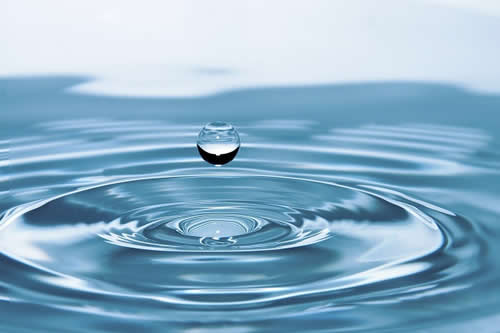
Water affects every organ and cell in our body but it has particular importance for the spine. This is because the discs that sit between the vertebrae in our spinal column are filled with a toothpaste like substance which is comprised mainly of water. These discs act as shock absorbers and stop our bones rubbing against each other, especially when moving or bending.
You’ve probably noticed we are all a little taller when we wake up in the morning. This is because when we are lying in bed the spine relaxes, there is no downward pressure on the discs and they absorb water, increasing their height fractionally. However, once we stand and start moving, gravity acts downward and the constitution of the discs in our spine begins to change.
Whether we are walking, sitting or standing, it all puts pressure on the spine causing the vertebrae to continually squeeze the cushion-like discs which can then lose water.
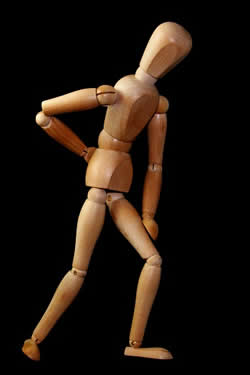
If we are not constantly replenishing this lost water the disc walls can start to dry and crack, which makes them weaker. At the same time, the loss of water reduces pressure in the disc, rather like a deflated bicycle tyre, and there is less support. This is especially the case as we age.
If the space between the vertebrae narrows, or if the disc bulges outwards through the weakened wall, this can pinch or put pressure on sensitive nerves around the spine and can result in back pain or nerve pain in the legs (from lower back) or arms (if coming from the neck). Of course, when we are young, fit and healthy it is easier to replenish and rehydrate, but as we age, we tend to drink less water and we are less able to retain water as efficiently as we used to.
It is one of the reasons that falls among the elderly happen and why older people have more restricted movement. Even a relatively low level of dehydration can cause dizziness or stiffness. This, added to the overall ageing process, can lead to falls.

Our spine relies on movement to stay healthy. Having a degree of flexibility and strength is important and movement allows the body to replenish water in the discs. But if we don’t move our spine, which is common as activity levels decrease, then we can start to lose that flexibility. It comes down to the simple saying ‘use it or lose it’ and this is an important factor in spine health and avoiding back pain.
One of the main problems when it comes to good hydration is that as we age our bladders become weaker and we don’t like having to make more frequent trips to the loo.
The obvious answer would appear to be to drink less water but then we are in the vicious cycle of not enough hydration, therefore our movement becomes restricted and we start to encounter a variety of back problems.
Key Factors in Keeping your Back Healthy
- Exercise. Pilates is particularly good for the back. It increases flexibility and improves your core strength;
- Follow a healthy diet;
- Drink plenty of water – around 2 litres a day is ideal. If you don’t like the taste flavour it with some fresh lime or lemon but don’t substitute with sugary drinks;
- Check the colour of your urine. If you are drinking enough water it should resemble a very pale white wine.
If you do find that despite all your hard work you still suffer with back pain the most important thing is to keep moving. It might be painful but it won’t be harmful so there is no need to think you have to lie or sit in one position.
Loved ones won’t want to see you suffering in pain but this is one of the times when a bit of tough love is needed.
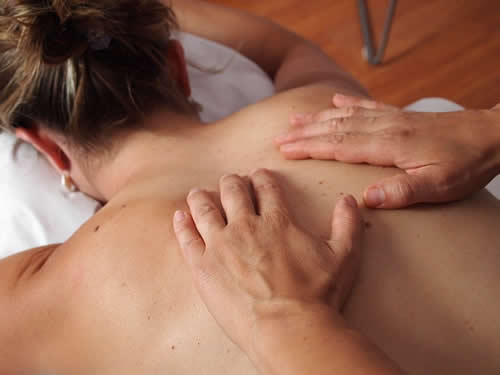
What You Can Do
- Increase your intake of water;
- Keep moving even though it is the last thing you will want to do;
- Visit a physiotherapist or other practitioner;
- IDD Therapy for disc problems.
Three years ago, I added an IDD Therapy spinal decompression machine at our practice, having turned down approaches from the manufacturers on three occasions, dismissing it as ‘only traction’.
While it’s not the busiest part of the practice it is the part I am most passionate about and I wish I had discovered it 20 years ago. IDD Therapy helps patients primarily with unresolved disc problems, though of course back pain has many factors and the disc is just one part of the picture.
IDD Therapy is expanding because more and more clinicians are seeing such positive outcomes for a category of patient they previously hadn’t been able to treat.
I hope at some point IDD Therapy will become the first point of call for people in pain though it does take time for NICE (National Institute for Health and Care Excellence) to change its guidelines.
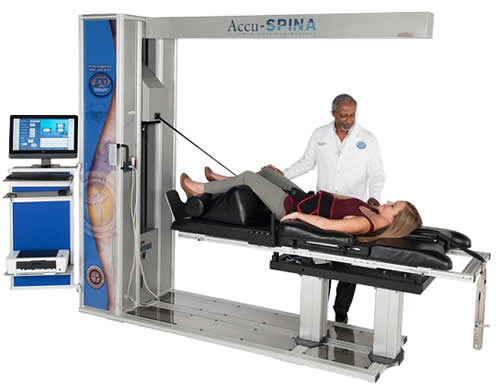
What is IDD Therapy?
IDD (Intervertebral Differential Dynamics) is a computer-controlled treatment that helps decompress the specific spinal segment that causes the pain.
It is non-invasive and helps patients who need something more for their pain when manual therapy alone is insufficient to achieve lasting pain relief
Patients lie on a treatment couch where they are connected to a machine with a pelvic and a chest harness.
The machine applies a gentle pulling force at a precise angle to take pressure off the targeted disc and to gently mobilize the joint and surrounding muscles. Around three quarters of patients having IDD Therapy enjoy success. This is especially significant when we consider that most of the patients we see for IDD Therapy have failed to respond to other treatments.
But whatever treatment patients opt for I think the most important thing is to remember there is no real quick fix for back pain and patients need to take their own steps also to ensure they are doing everything possible for a healthy back.
While I can do a lot to help and give them relief from the pain, the overall message at my practice is to get people to take responsibility for themselves.
It is important that people work at strengthening and lengthening their backs through movement and exercise and they need to realize the importance of drinking enough water to make sure those hard-working discs in the spine are replenished and rehydrated constantly.
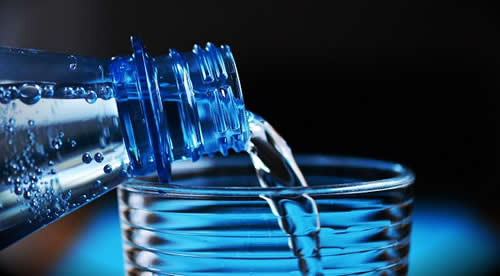
Tips for Office Workers
If you’re sitting at a desk for any length of time, whether at your place of work or in your home office, in addition to keeping active and drinking plenty of water, I’d suggest the following in order to care for your back:
- Simple stretches to help offset the hours of sitting can be beneficial, for example, the cat/cow, pectoral stretches, hamstring, calf and hip flexor stretches. There are plenty of free to view websites if you are unsure of these techniques or consult your physiotherapist;
- Always ensure that your chair and desk are in the correct position in a way that puts minimal stress on your back and in which you are comfortable;
- I would highly recommend trying a sit/stand desk. These give you the ability to alter the height of your working area so you can switch between sitting down and standing up without having to move or rearrange your desk area, giving a change of position which is helpful to your lower back;
- Use the toilet that is the furthest away from your desk so you have to move more and sit less. Also, avoid getting a snack or drink or going to the printer while you are already up. Do each thing separately so you are getting up repeatedly;
- Similarly, it might seem counter-intuitive but put things that are used regularly further away from your desk, rather than closer. For example, bins, printers, water coolers and filing areas. You can even put the printer paper at the opposite end of the room from the printer, again to encourage frequent movement;
- If you have an acute musculoskeletal injury, (this is where there has been a sudden onset of pain often due to a memorable incident and the injured area may feel hot and swollen) often placing an ice pack (wrapped in a towel to avoid ice burning the skin) on the injured area for 5 minutes and then removed for 5 minutes and repeat will help ease the pain;
- If your symptoms are stiffer in nature with no memorable injury then movement and heat can often be beneficial. Taking anti-inflammatories could also help improve your symptoms in the short term;
- Some more useful tips on office health can be found at: https://www.youtube.com/watch?v=8IbNN6BBhco which is a fun little video where you meet Harold sitting at a desk.
Patients might only see me once a week, the rest of the time the responsibility for their well-being is on theirs. So, as well as offering treatment, I think it is just as important to enable and empower patients to take charge of themselves and do everything they can to be as healthy as they can be.
Comments:
-
No Article Comments available